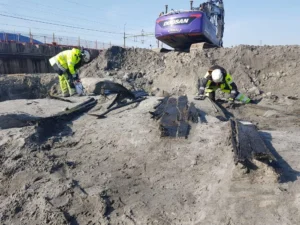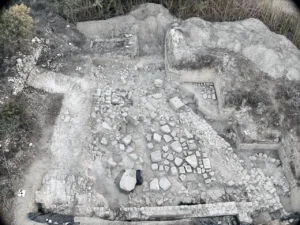Current Affairs 23 July 2025
Current Affairs 23 July 2025. India Races Ahead on Health, Cities, Tech & Eco Fronts. From sickle cell mission to resilient cities and SEBI’s digital revamp, here’s your 360° update on health, finance, tech, and climate action.
🟡 National Affairs
Sickle Drive
India Screens 6 Crore People for Sickle Cell Disease
India’s Sickle Cell Anemia Elimination Mission, launched on July 1, 2023, has screened over 6 crore people, inching closer to its 7 crore goal. The disease, affecting red blood cells, has been detected in 2.15 lakh people, with 16.7 lakh identified as carriers. States like MP, Gujarat, Rajasthan, and Telangana have outperformed screening targets. Over 2.6 crore health cards were distributed. Odisha, Chhattisgarh, MP, Maharashtra, and Gujarat reported the highest cases. Rapid testing is enabled using Point-of-Care Testing (POCT) kits, crucial in remote and tribal areas. The goal is elimination by 2047.
📌 Key Takeaway:
- Over 6 crore screened under SCD mission
- 2.15 lakh confirmed SCD cases
- Focus on tribal populations using POCT kits
Presidential Query
President seeks SC advice on Governor bill delay powers
In a rare move, President Droupadi Murmu invoked Article 143 of the Constitution to seek the Supreme Court’s opinion on whether the President or Governors can be forced to explain or act within a deadline when withholding assent to bills. This question comes amid increasing delays by Governors across states in processing state legislations. Article 143 allows the President to request SC’s legal view on matters of significant public or constitutional interest. While the Court’s advice isn’t legally binding, it usually holds persuasive weight. Notably, this provision has been invoked only around 15 times in India’s constitutional history.
📌 Key Takeaway:
-
UPSC-relevant topic on federalism, Centre-State relations
-
Highlights the advisory yet powerful nature of Article 143
School Surveillance
CBSE mandates CCTV in schools, triggers privacy debate
Following safety concerns, the CBSE has directed all affiliated schools to install CCTV cameras in classrooms, corridors, and open areas. This move aligns with the National Commission for Protection of Child Rights’ guidelines to strengthen child safety. Footage must be stored for at least 15 days and made accessible to authorities. While it aims to ensure staff accountability and fast emergency response, experts warn it could infringe on student and teacher privacy — especially in schools lacking the infrastructure to securely store data. Delhi has already installed 1.5 lakh cameras in public schools.
📌 Key Takeaway:
-
Balances institutional safety vs. individual privacy rights
-
Touches on child rights, digital surveillance, and data protection
Temple Autonomy
Temple funds for colleges? Sparks state control debate
Tamil Nadu’s plan to use Hindu temple funds to build educational institutions has reignited the long-standing debate on state control over religious places. About 40,000 temples in Tamil Nadu are currently under the state HRCE Act. Supporters say state oversight ensures transparency and prevents misuse of funds. Critics argue it infringes on the community’s right to manage religious affairs (Article 26) and discriminates, as other faiths have autonomy. This debate touches constitutional ethics, cultural traditions, and public faith in governance.
📌 Key Takeaway:
-
UPSC link: secularism, Article 25–28, governance
-
Highlights tension between religious freedom and state regulation
Start-Up Boost
Nagaland University to Host Northeast Incubation Centre
Nagaland University is now home to one of four new incubation centres under the North Eastern Council (NEC) and Indian Institute of Entrepreneurship (IIE) initiative. The aim? Strengthen start-up ecosystems across eight northeastern states. In FY25, 145 innovators will benefit—44 through Nagaland University, including participants from Assam, Arunachal, Manipur, and Nagaland. Programs include hackathons, bootcamps, and mentorship. The top 50 performers will receive up to ₹5 lakh each in startup seed funding.
📌 Key Takeaway:
- Centre to nurture 145 entrepreneurs in NE
- ₹5 lakh seed funding for top 50 incubatees
- Led by MSDE and NEC
🌐 International Affairs
Urban Risk
Indian Cities to Create 70% Jobs by 2030, Face ₹40K Cr Flood Risk
A World Bank–MoHUA report warns that India’s cities, while becoming economic hubs with 70% job creation by 2030, face severe climate risks. Without adaptation, annual flood losses may rise from $4B now to $5B in 2030 and $30B by 2070. By 2050, cities will need $2.4T investment to stay resilient. India’s urban population may reach 951M by 2050. Cities like Chennai, Indore, Delhi, and Surat face intense heat island effects, rising 3–4°C over surroundings.
📌 Key Takeaway:
- Urbanisation to create majority of new jobs
- Climate inaction could cost ₹2.4 lakh crore
- Cities need low-carbon infrastructure urgently
India–Nepal Pact
India boosts Nepal ties with ₹390 crore development push
India has signed a new agreement with Nepal to implement five High-Impact Community Development Projects (HICDPs) in education and healthcare, backed by a grant of ₹390 million. The projects include four schools and a hospital in remote districts like Manang, Achham, and Dhanusha. These grassroots efforts deepen people-to-people ties under the “Roti-Beti” bond and help India counter growing Chinese influence in the region. However, longstanding issues like border disputes (e.g., Lipulekh), delays in projects like Pancheshwar, and Nepal’s demand to revise the 1950 Treaty remain unresolved.
📌 Key Takeaway:
-
Reinforces India’s soft power in neighbourhood diplomacy
-
Relevant for UPSC under IR: India–Nepal strategic ties & China factor
📈 Banking & Finance
Unified Reports
SEBI Launches Central Compliance Platform for Brokers
Starting August 1, 2025, SEBI’s new “Samuhik Prativedan Manch” platform will allow brokers to file compliance reports centrally, replacing multiple submissions to various stock exchanges. Phase 1 includes 40 reports; more will be added later. About 990 brokers operating across exchanges will benefit immediately. Developed with NSE, this move will cut compliance costs, reduce duplication, and ease regulatory burdens. The effort aligns with SEBI’s push for a tech-driven, investor-friendly ecosystem.
📌 Key Takeaway:
- Brokers file once instead of multiple times
- 990 multi-exchange brokers to benefit first
- Boosts transparency and efficiency in markets
NRI Accounts
Equitas Bank Rolls Out Explorer & FCNR Products
Equitas Small Finance Bank has launched two NRI-focused products: the ‘Explorer Savings Account’ for seafarers and the FCNR(B) Deposit Account in USD. The FCNR(B) offers tax-free interest and full repatriation. Explorer comes in NRE and NRO variants, catering to mariners, oil rig staff, and global workers. With competitive rewards and online services, Equitas is expanding into the lucrative NRI banking segment.
📌 Key Takeaway:
- New deposit and savings products for NRIs
- FCNR(B) allows tax-free, USD-denominated FDs
- Explorer tailored for seafarers and PIOs
Credit Cards
PhonePe and SBI Card Launch Two Co-Branded Credit Cards
On July 22, 2025, PhonePe and SBI Cards launched two variants—PhonePe SBI Card PURPLE and SELECT BLACK—available on RuPay and VISA networks. These contactless cards offer 3%–10% rewards on PhonePe and Pincode apps and other perks like gift vouchers up to ₹5,000. The cards are directly accessible through the PhonePe app, allowing users to earn while spending on groceries, travel, insurance, and more.
📌 Key Takeaway:
- Seamless UPI + card integration
- Rewards on everyday transactions
- Focus on digital-first, credit expansion
NPA Drop
Public Sector Bank NPAs Fall to 2.58% in FY25
According to RBI data, Gross NPAs of Public Sector Banks have dropped to 2.58% in FY25 from a high of 9.11% in FY21. Factors include the Insolvency and Bankruptcy Code (IBC), better risk practices, and early fraud detection. Total scheduled bank NPAs fell to ₹4.45 lakh crore in Dec 2024 from ₹10.36 lakh crore in 2018.
📌 Key Takeaway:
- Sharp decline in NPA ratio over 5 years
- IBC and early detection proved effective
- PSBs improving financial health
Inclusion Index
RBI’s Financial Inclusion Index Rises to 67 in FY25
India’s Financial Inclusion Index rose to 67 in March 2025 from 64.2 in 2024, reflecting better access, usage, and quality of services. Introduced in 2021, this composite score covers banking, insurance, pensions, and postal services. Notably, there’s no base year, and the index is updated annually. This year saw growth across all three parameters: access (35%), usage (45%), and quality (20%).
📌 Key Takeaway:
- Steady rise in financial inclusion
- Score up from 53.9 in 2021 to 67 in 2025
- Driven by rural outreach and digital finance
Clearing Renewal
SEBI Renews MCXCCL License for 3 Years
SEBI has renewed Multi Commodity Exchange Clearing Corporation Ltd’s recognition as a clearing body till July 30, 2028. MCXCCL, a fully owned MCX arm, manages commodity trades. The renewal is contingent on compliance with risk, governance, and capital rules. This assures uninterrupted clearing operations for commodity derivatives.
📌 Key Takeaway:
- SEBI extends MCXCCL’s licence till 2028
- Ensures stability in commodity markets
- Compliance and governance are key terms
🧬 Science & Tech
Crash Lessons
Air India crash uncovers deep aviation safety flaws
The June 2025 Air India Boeing 787 crash in Ahmedabad has spotlighted India’s aviation safety gaps. The preliminary AAIB report faced criticism for lack of transparency. Key issues include overworked engineers, exhausted pilots, weak regulation by the DGCA, and a severe ATC staff shortage. Aircraft design approvals still rely on foreign agencies like the FAA and EASA. Mumbai’s airspace has over 1,000 vertical obstructions violating basic safety norms. Experts argue India needs a “culture of safety” with fatigue norms, whistle-blower protection, and independent crash probes.
📌 Key Takeaway:
- Points to gaps in India’s regulatory capacity, infrastructure, and oversight
- Links with ethics, governance, and public accountability in science
🌿 Environment & Climate
Green Challenge
Gujarat CM Launches Plantation Drive in Barda Hills
On July 22, 2025, Gujarat CM Bhupendra Patel launched a massive tree plantation campaign in Porbandar’s Barda Hills, involving 600 locations across 33 districts. The drive supports the national “Meri LiFE, Mera Swachh Shehar” initiative and aims to plant over 25 crore saplings this monsoon. The campaign aligns with Gujarat’s Vision 2070 and the UN’s “Decade on Ecosystem Restoration,” addressing biodiversity and environmental health.
📌 Key Takeaway:
- State-wide plantation across 33 districts
- 25 crore saplings planned in 2025
- Focus on ecosystem restoration and water conservation
Bamboo Boost
G20-GPFI Highlights Bamboo as a ‘Green Gold’ for Jobs & Climate
At the G20 Global Partnership for Financial Inclusion (GPFI), India’s “Green Development Pact” recognized bamboo as a key enabler of green livelihoods. The event in Mumbai, hosted by the Finance Ministry and NAFED, showcased innovations like compressed bamboo bricks and incense sticks. India is the world’s 2nd-largest bamboo grower after China, with huge employment and carbon-offsetting potential.
📌 Key Takeaway:
- Bamboo vital for green jobs and carbon neutrality
- Focus on tribal and rural enterprise
- India promoting bamboo-based MSMEs
Herbal India
Ayush Ministry Launches 32-Day Herbal Plantation Campaign
Under “Ayurveda Gyan Ganga,” the Ministry of Ayush started a 32-day national drive to plant herbal species in schools, colleges, and villages. The campaign promotes traditional health knowledge and community awareness, focusing on native medicinal plants.
📌 Key Takeaway:
- Herbal plantations linked to wellness education
- Aligns with National Ayush Mission
- Promotes indigenous plant awareness
Neelakurinji Threat
Rare blue bloom flower now listed as ‘Vulnerable’
The iconic Neelakurinji (Strobilanthes kunthiana), famous for carpeting the Western Ghats in blue once every 12 years, has been listed as Vulnerable by the IUCN. However, states like Kerala, Tamil Nadu, and Karnataka haven’t taken steps to protect it under the Biological Diversity Act, 2002. This monocarpic shrub grows only between 1,300–2,400 metres and is highly sensitive to habitat loss from tourism, climate change, and plantation expansion. Field data shows its range has shrunk drastically, with sightings as low as 1,100m.
📌 Key Takeaway:
- Important for Prelims: endangered flora, biodiversity, habitat loss
- Highlights policy inertia in protecting iconic endemic species
🏛️ History & Archaeology
MiG-21 Retires
India bids farewell to its ‘Flying Coffin’ fighter jet
After over 60 years in service, the Indian Air Force is finally retiring its last MiG-21 Bison jets. Introduced in 1963, the Soviet-made MiG-21 was India’s first supersonic fighter, clocking Mach 2.1 speeds. It played key roles in the 1965 and 1971 wars and even the 1999 Kargil conflict. However, frequent crashes — earning it the grim nickname “Flying Coffin” — led to a long-delayed phase-out. The IAF now relies on platforms like Rafale, Sukhoi Su-30MKI, Tejas, and Mirage 2000.
📌 Key Takeaway:
- Prelims-ready facts: jet specs, war history, defence transition
- Reflects India’s push toward modern, indigenous air power
🙌 In News
Tribal Training
Govt trains 20 lakh tribal officials under ‘Adi Karmayogi’
The Ministry of Tribal Affairs has launched the 2nd Regional Process Lab (RPL) in Bhopal under the Adi Karmayogi Abhiyan. This national mission aims to train over 20 lakh grassroots officials and workers across 1 lakh tribal villages. Based on a participatory, bottom-up model, it includes a cascade training system — with State Master Trainers teaching District Trainers through field-based labs. The goal: responsive governance, inclusive planning, and better welfare delivery in tribal areas. The initiative blends governance, capacity-building, and convergence across ministries.
📌 Key Takeaway:
- GS2-relevant: tribal empowerment, governance reform, mission mode delivery
- Helps meet UPSC themes of inclusive governance and federalism
✅ Final 12 Takeaways (With Natural CTA)
- India nears its sickle cell screening goal—a milestone in tribal healthcare.
- Nagaland’s startup push is bringing entrepreneurship to India’s northeast.
- Urban India faces ₹2.4 lakh crore climate risk if resilience isn’t prioritized now.
- SEBI’s tech reforms simplify compliance for over 900 brokers.
- Equitas Bank’s NRI offerings expand banking access to global Indians.
- PhonePe & SBI Cards blend UPI and credit, targeting digital-savvy consumers.
- Public sector NPAs fall sharply, signaling stronger banking governance.
- Financial inclusion rises, proving India’s digital push is reaching the grassroots.
- SEBI extends MCXCCL license, stabilizing commodity trading till 2028.
- Gujarat’s Barda plantation drive supports ecosystem and water goals.
- Bamboo economy gains traction, opening green job opportunities for youth.
- Herbal drive reconnects communities with Ayush traditions—a timely reminder to blend ecology, economy, and education.
- President seeks SC opinion under Article 143 on bill assent delays
- CBSE mandates CCTVs in schools amid privacy concerns
- Tamil Nadu’s temple fund use revives control vs. autonomy debate
- India signs ₹390 million Nepal pact for education and healthcare
- Air India crash exposes deep aviation safety gaps
- Neelakurinji declared Vulnerable; needs urgent conservation push
- PM-DDKY merges 36 schemes to boost farm productivity
- IAF retires MiG-21 after 60+ years of service
- Adi Karmayogi trains 20 lakh tribal officials in participatory governance
- SC’s Article 143 opinions are advisory, not binding
- World Youth Skills Day reinforces India’s skill development mission
📰 Stay tuned for daily actionable updates. Share this article with UPSC peers and curious minds to deepen awareness on India’s growth and global role.
Share this content:














Post Comment